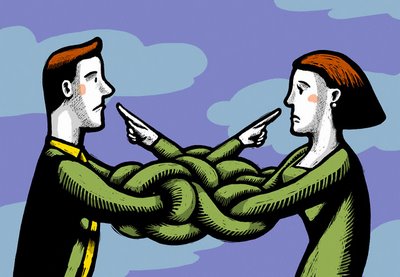Marital Therapists Offer Advice on Tuning Up Your Marriage
- Monday, 11 April 2016 14:22
- Last Updated: Monday, 11 April 2016 14:31
- Published: Monday, 11 April 2016 14:22
- Joanne Wallenstein
- Hits: 5390
 Last week, marital therapists and educators Phil Lee MD and Diane Rudolph MD led a well-attended workshop at the Scarsdale Adult School on "What Makes Marriage Work". We followed up with this interview with Phil and Diane to share some of their insights with you.
Last week, marital therapists and educators Phil Lee MD and Diane Rudolph MD led a well-attended workshop at the Scarsdale Adult School on "What Makes Marriage Work". We followed up with this interview with Phil and Diane to share some of their insights with you.
Scarsdale 10583: What are the biggest misconceptions about marital therapy?
Diane: "There is a common misconception that marital therapy is only for marriages in distress. Nothing could be further from the truth. While it is true that that marital therapy can make failing marriages into successful ones, it is equally true that C+ marriages can quickly become B+ marriages, and A- marriages can become A+ marriages.
Phil: Another misconception is that marital therapy has to take a long time. Many marriages benefit from 4-6 sessions of an empirically derived focused therapy. The better the marriage the quicker it can markedly improve.
Scarsdale10583: You mentioned in your talk that 80% of the time the man is the one who is reluctant to engage in any kind of therapy. Why is that?
Phil: The 80% figure is true for marriages in significant distress, and it is true for high functioning marriages. Many men anticipate marital therapy will be touchy-feely, overly emotional, and lead to further argument. Our therapy is more like taking a golf or tennis lesson if you want to get better. But marriage is a game we are thrown into without instruction and often without having had the opportunity to see the best players perform.
Diane: Research by Dr. John Gottman, author of the best selling book, "The Seven Principles for Making Marriage Work," has shown the behaviors that are associated with success, and has revealed the behaviors that are associated with failure. The higher the percentage of good behaviors the happier and more satisfying the marriage.
Phil: Many of the keys to success are not intuitive, but the research is impeccable, and adopting some behaviors while abandoning others can lead to sudden and dramatic increase in marital satisfaction, for men as well as women. I mentioned that 80% of men are reluctant to try to improve marriage, but men are just as satisfied with the results as are women.
Scarsdale 10583: What is one tip you can share with our readers that will help their marriages?
Diane: We can minimize the cycle of criticism, defensiveness, and stonewalling that characterize many marital arguments. But even the best marriages sometimes have arguments. It is very important to be able to end the argument.
Phil: Arguments end when both partners take some responsibility for the argument. Suppose Diane says "I'm sorry I yelled at you about taking out the trash. I've been really irritable." If I say "yeah, you sure have been in a mood," then the whole thing starts up again. If I instead say, "Well, I really overreacted to your yelling," – then the argument ends. Everybody has to take some responsibility.
Scarsdale 10583: In the workshop you gave some practical advice on how to communicate productively to resolve conflicts.
Phil: Yes – we suggest beginning the discussion with what Gottman calls a "soft start-up." What does that mean? For starters, don't blame your spouse for the problem. Just say that you're upset, or that you feel that it could be handled better. For example rather than saying, "You are careless with money," say, "I want us to save more."
Scarsdale 10583: That is really helpful – obvious after you see it but like you said, not intuitively obvious.
Diane Rudolph MD and Phil Lee MD are the Co-heads of Marital Therapy at Weill Cornell Medical Center in New York City, where they teach marital therapy to the psychiatry residents. They have offices in Greenwich and on the Upper East Side of Manhattan. They can be reached at 212-734-3424 or by email at [email protected] or [email protected].
They are married in real life and reside in White Plains, N.Y.






